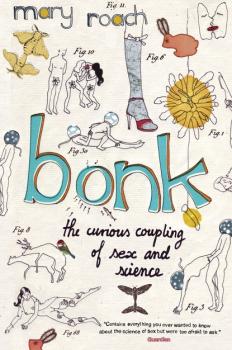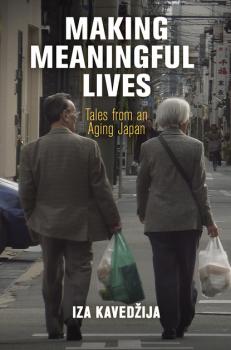Биология
Различные книги в жанре БиологияThe Not-So-Intelligent Designer
Why do men's testicles hang outside the body? Why does our appendix sometimes explode and kill us? And who does the Designer like better, anyway–us or squid? These and other questions are addressed in The Not-So-Intelligent Designer: Why Evolution Explains the Human Body and Intelligent Design Does Not.
Dr. Abby Hafer argues that the human body has many faulty design features that would never have been the choice of an intelligent creator.
She also points out that there are other animals that got better body parts, which makes the Designer look a bit strange; discusses the history and politics of Intelligent Design and creationism; reveals animals that shouldn't exist according to Intelligent Design; and disposes of the idea of irreducible complexity.
Her points are illustrated with pictures, wit, and erudition.
Contraception Made Easy
From reviews: "This book aims to provide a concise yet comprehensive overview of contraceptive methods, and issues related to their use. The authors have succeeded in this aim, producing a very readable book, which can equally be read as a whole or in sections without losing the context… I thought that the chapters on combined oral contraceptives and emergency contraception were particularly good, and the chapter providing an overview of sexually transmitted infections and their management highlighted an important but potentially overlooked element of a contraceptive consultation. Other particularly useful features of the book are the ‘starting regimens’ and ‘myths and misconceptions’ sections included for each method, which provide clear guidance on treatment initiation and robust discussion on common misapprehensions about contraception. The book includes a useful decision tree on which to base an initial consultation…" J Fam Plann Reprod Health Care 2016;42:58. Contraception Made Easy provides a concise overview of the subject and is especially written for non-specialists. The main audience for the book will be those working or training in primary care who want an easy-to-access, brief reference on the subject. Building on the success of the other Made Easy books ( Medical Statistics Made Easy , Clinical Evidence Made Easy, Healthcare Economics Made Easy, Practice Accounts Made Easy ), this book provides concise and easy access to the key areas of contraception required by primary care professionals. About the authors: Laura Percy is a Specialist Registrar in Community Sexual and Reproductive Health. Diana Mansour is a Consultant in Community Gynaecology and Reproductive Healthcare and Head of the Integrated Sexual Health Services for Newcastle upon Tyne, UK. She is also a Faculty Officer and Treasurer for the Faculty of Sexual and Reproductive Health Care, UK.
Gender, Genre, and Power in South Asian Expressive Traditions
The authors cross the boundaries between anthropology, folklore, and history to cast new light on the relation between songs and stories, reality and realism, and rhythm and rhetoric in the expressive traditions of South Asia.
Beyond the Good Death
In November 1998, millions of television viewers watched as Thomas Youk died. Suffering from the late stages of Lou Gehrig's disease, Youk had called upon infamous Michigan pathologist Dr. Jack Kevorkian to help end his life on his own terms. After delivering the videotape to 60 Minutes , Kevorkian was arrested and convicted of manslaughter, despite the fact that Youk's family firmly believed that the ending of his life qualified as a good death. Death is political, as the controversies surrounding Jack Kevorkian and, more recently, Terri Schiavo have shown. While death is a natural event, modern end-of-life experiences are shaped by new medical, demographic, and cultural trends. People who are dying are kept alive, sometimes against their will or the will of their family, with powerful medications, machines, and «heroic measures.» Current research on end-of-life issues is substantial, involving many fields. Beyond the Good Death takes an anthropological approach, examining the changes in our concept of death over the last several decades. As author James W. Green determines, the attitudes of today's baby boomers differ greatly from those of their parents and grandparents, who spoke politely and in hushed voices of those who had «passed away.» Dr. Elisabeth Kübler-Ross, in the 1960s, gave the public a new language for speaking openly about death with her «five steps of dying.» If we talked more about death, she emphasized, it would become less fearful for everyone. The term «good death» reentered the public consciousness as narratives of AIDS, cancer, and other chronic diseases were featured on talk shows and in popular books such as the best-selling Tuesdays with Morrie . Green looks at a number of contemporary secular American death practices that are still informed by an ancient religious ethos. Most important, Beyond the Good Death provides an interpretation of the ways in which Americans react when death is at hand for themselves or for those they care about.
National Wildlife Federation®: Attracting Birds, Butterflies, and Other Backyard Wildlife, Expanded Second Edition
From renowned National Wildlife Federation naturalist and TV host David Mizejewski comes a new book to show you how to create a magical ecosystem right in your backyard! Invite beautiful songbirds, colorful butterflies, buzzing bees and other fascinating wildlife by nurturing a wildlife habitat garden. With more than 200 high-quality photographs, lists of the best native plants to support wildlife and 17 gardening projects the whole family can enjoy, from building bird houses to creating garden ponds, Attracting Birds, Butterflies, and Other Backyard Wildlife, Expanded Second Edition is a must-have resource for nature enthusiasts, gardeners, and animal lovers.
Laid Waste!
After humble beginnings as faltering British colonies, the United States acquired astonishing wealth and power as the result of what we now refer to as modernization. Originating in England and Western Europe, transplanted to the Americas, then copied around the world in the nineteenth and twentieth centuries, this process locked together science and technology, political democracy, economic freedom, and competitive capitalism. This has produced for some populations unimagined wealth and material comfort, yet it has also now brought the global environment to a tipping point beyond which life as we know it may not be sustainable. How did we come to endanger the very future of life on earth in our heedless pursuit of wealth and happiness? In Laid Waste! , John Lauritz Larson answers that question with a 350-year review of the roots of an American «culture of exploitation» that has left us free, rich, and without an honest sense of how this crisis came to be. Larson undertakes an ambitious historical synthesis, seeking to illuminate how the culture of exploitation grew out of the earliest English settlements and has continually undergirded U.S. society and its cherished myths. Through a series of meditations on key concepts, the story moves from the starving times of early Jamestown through the rise of colonial prosperity, the liberation of the revolutionary generation, the launching of the American republic, and the emergence of a new global industrial power by the end of the nineteenth century. Through this story, the book explores the rise of an American sense of righteousness, entitlement, and destiny that has masked any recognition that our wealth and success has come at expense to anyone or anything. Part polemic, part jeremiad, and part historical overview, Laid Waste! is a provocative and bracing account of how the development of American culture itself has led us to today's crises.
Making Meaningful Lives
What makes for a meaningful life? In the Japanese context, the concept of ikigai provides a clue. Translated as «that which makes one's life worth living,» ikigai has also come to mean that which gives a person happiness. In Japan, where the demographic cohort of elderly citizens is growing, and new modes of living and relationships are revising traditional multigenerational family structures, the elderly experience of ikigai is considered a public health concern. Without a relevant model for meaningful and joyful older age, the increasing older population of Japan must create new cultural forms that center the ikigai that comes from old age. In Making Meaningful Lives , Iza Kavedžija provides a rich anthropological account of the lives and concerns of older Japanese women and men. Grounded in years of ethnographic fieldwork at two community centers in Osaka, Kavedžija offers an intimate narrative analysis of the existential concerns of her active, independent subjects. Alone and in groups, the elderly residents of these communities make sense of their lives and shifting ikigai with humor, conversation, and storytelling. They are as much providers as recipients of care, challenging common images of the elderly as frail and dependent, while illustrating a more complex argument: maintaining independence nevertheless requires cultivating multiple dependences on others. Making Meaningful Lives argues that an anthropology of the elderly is uniquely suited to examine the competing values of dependence and independence, sociality and isolation, intimacy and freedom, that people must balance throughout all of life's stages.
Fighting for Dignity
In Fighting for Dignity , Sarah S. Willen explores what happened when the Israeli government launched an aggressive deportation campaign targeting newly arrived migrants from countries as varied as Ghana and the Philippines, Nigeria, Colombia, and Ukraine. Although the campaign was billed as a solution to high unemployment, it had another goal as well: to promote an exclusionary vision of Israel as a Jewish state in which non-Jews have no place. The deportation campaign quickly devastated Tel Aviv's migrant communities and set the stage for even more aggressive antimigrant and antirefugee policies in the years to come. Fighting for Dignity traces the roots of this deportation campaign in Israeli history and the Israeli-Palestinian conflict and shows how policies that illegalize and criminalize migrants wreak havoc in their lives, endanger their health, and curtail the human capacity to flourish. Children born to migrant parents are especially vulnerable to developmental and psychosocial risks. Drawing on nearly two decades of ethnographic engagement in homes and in churches, medical offices, advocacy organizations, and public spaces, Willen shows how migrants struggle to craft meaningful, flourishing lives despite the exclusions and vulnerabilities they endure. To complement their perspectives, she introduces Israeli activists who reject their government's exclusionary agenda and strive to build bridges across difference, repair violations of migrants' dignity, and resist policies that violate their own moral convictions. Willen's vivid and unflinching ethnography challenges us to reconsider our understandings of global migration, human rights, the Middle East— and even dignity itself.
Human Rights Transformation in Practice
Human rights are increasingly described as being in crisis. But are human rights really on the verge of disappearing? Human Rights Transformation in Practice argues that it is certainly the case that human rights organizations in many parts of the world are under threat, but that the ideals of justice, fairness, and equality inherent in human rights remain appealing globally—and that recognizing the continuing importance and strength of human rights requires looking for them in different places. These places are not simply the Human Rights Council or regular meetings of monitoring committees but also the offices of small NGOs and the streets of poor cities. In Human Rights Transformation in Practice , editors Tine Destrooper and Sally Engle Merry collect various approaches to the questions of how human rights travel and how they are transformed, offering a corrective to those perspectives locating human rights only in formal institutions and laws. Contributors to the volume empirically examine several hypotheses about the factors that impact the vernacularization and localization of human rights: how human rights ideals become formalized in local legal systems, sometimes become customary norms, and, at other times, fail to take hold. Case studies explore the ways in which local struggles may inspire the further development of human rights norms at the transnational level. Through these analyses, the essays in Human Rights Transformation in Practice consider how the vernacularization and localization processes may be shaped by different causes of human rights violations, the perceived nature of violations, and the existence of networks and formal avenues for information-sharing. Contributors : Sara L. M. Davis, Ellen Desmet, Tine Destrooper, Mark Goodale, Ken MacLean, Samuel Martínez, Sally Engle Merry, Charmain Mohamed, Vasuki Nesiah, Arne Vandenbogaerde, Wouter Vandenhole, Johannes M. Waldmüller.









